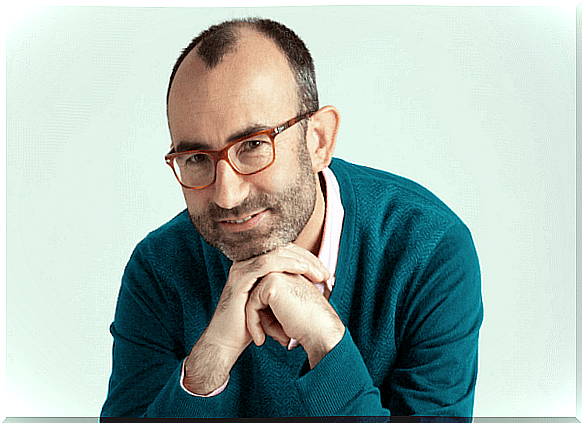Interview With Rafael Santandreu: Is It Possible To Dismantle Fears?

Today, Rafael Santandreu invites us to reflect on the fears of cognitive psychology, on these fears which, day after day, accompany us, with the aim of helping us to deactivate the thought patterns that go against our happiness.
It should be remembered that this approach of Rafael Santandreu, this therapeutic school, is one of the most effective and the one that enjoys the greatest scientific support. Thus, an aspect of great interest that this famous psychologist points out to us, in his latest book Nada es tan terrible (Nothing is so terrible) , is that each of us has the possibility of getting rid of our fears.
The goal is high, impossible, many will say. However, if we were to define happiness in one way or another, it would essentially be “the absence of fears”. Because fears, our daily anxieties, cut off impulses, extinguish potentials and trap us in spaces where the sun of happiness does not reach.
Interview with Rafael Santandreu
Then, Rafael Santandreu invites us to face our fears to understand that they are only erroneous thoughts, biased ideas which sometimes even feed on invented needs.
We can all eliminate these uncomfortable stowaways from our minds. And cognitive psychology is the key . Let’s get started!
In your books, you say that it is possible to eliminate all fears. Is it true ?
Yes, fear is an emotion that stems from beliefs, rational or not, that we all feel.
It is certain that there is a series of fears which prevent us from going further, which hinder our personal development and which, in a certain way, limit us. This type of fear is the result of inappropriate ideas or irrational beliefs. The good news is that when we eliminate these misconceptions, those fears go away. This is how cognitive or “thinking” psychology works. By reasoning well, we say goodbye to fears forever!
For example ?
The fear of speaking in public. A lot of people have this fear and it is because we think it would be “terrible” to do it wrong, because of a feeling of insecurity. I no longer believe it and that’s why I no longer have this fear.
For me, it’s perfectly normal to give a bad conference. Absolutely nothing would happen. I will always be so proud and happy. As unbelievable as it may sound, I no longer experience any stress or nervousness before speaking in public. I could fall asleep before going out …

Does it make a difference if you do it right or wrong?
No. I prefer it to go well, but it’s not something that “worries me” at all. To remove all fear, you have to know that what you are afraid of is not so bad : you can be happy even if something happens to be “so terrible”. Then the pressure and the fear go away.
This is where your concept of “necessitity” comes in, isn’t it?
Absolutely. “Necessity” is the belief that we need a lot to be well. If you take this idea out of your head, immediately you lose a lot of fear because you no longer need to have money, status, to do whatever it takes, to be treated well. , etc. And without the absurd pressure of having to do everything to get that, we live a lot more relaxed.
This concept of detachment was already present among Buddhists …
Yes, we share this same idea. The difference is that cognitive psychology teaches you to let go of “invented needs” through a series of arguments. In the public speaking example, I convinced myself for weeks that it was not important to do things right or wrong, and I used dozens of arguments, until that I finally understood. It is a process.
Is cognitive therapy argumentative therapy?
It’s the case. She seeks to convince the person that she can be happy, for example, without a partner or without a job. We use many arguments until the person is freed from the need that overwhelms him and therefore from the fear. It’s kind of brainwashing .
But often, we do not know what causes this or that fear …
Indeed. For example, behind stress at work, there is often an exaggerated need for economic security and status. But if you study cognitive psychology with a textbook or therapy with a psychologist, you will find out how this exaggerated need is found in you.
What is the most common fear in therapy?
The fear of change. For example, to leave your partner when you are no longer in love and the relationship is not working out. In these cases, people fear loneliness. Or the fear of changing jobs… This is due to an exaggerated need for financial security. After doing cognitive therapy, the change seems attractive and the most normal thing in the world.

Does cognitive psychology reduce these fears by working on these invented needs?
Absolutely, it is. When you come to the deep conviction that you don’t need “to be accompanied all the time” or “complete economic security”, for example, these two fears disappear. This change does not happen overnight, but it takes work.
There is a phrase from Saint Francis of Assisi on the needs that you often mention …
Yes I really like. It is said that at the end of his life, Saint Francis of Assisi said: “ I need less and less things and the little I need, I need very little ”. I’m sure he was a very strong, happy guy.
We don’t even have to be afraid of death, do we?
Of course not. Death is natural and normal. Something good. All natural facts are good. So you don’t have to be afraid of it at all. If you think carefully and use a lot of arguments, you will lose your fear of death and disease. It’s easier than it looks.









